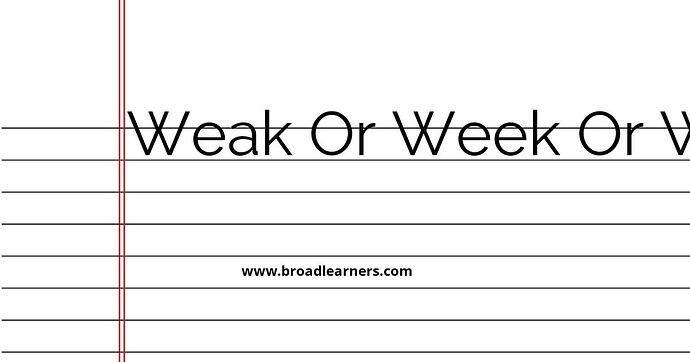'Weak', 'week', and 'week' are commonly confused words in English grammar. Understanding the difference between 'weak', 'week', and 'week' is important to use them correctly in written and spoken English.
'Weak' is an adjective that means lacking in strength or power. It describes something that is not strong physically, mentally, or morally.
'Week' is a noun that refers to a period of seven days, starting from Sunday and ending on Saturday. It is also used to indicate a particular week in a month or year.
'Week' is a common misspelling of 'weak' and 'week'. It is incorrect and should be avoided in formal writing.
Let's take a closer look at the meanings and usage of 'weak', 'week', and 'week'.
| 'Weak' | 'Week' | 'Week' (Common Misspelling) |
|---|---|---|
| The word 'weak' is an adjective that means lacking in strength or power. | The word 'week' is a noun that refers to a period of seven days. | The word 'week' is a common misspelling of 'weak' and 'week'. |
|
|
|
To remember the difference between 'weak', 'week', and 'week', it can be helpful to remember that 'weak' describes a lack of strength or power, 'week' refers to a period of seven days, and 'week' is a common misspelling of 'weak' and 'week'.
Here are some examples of correct usage:
- He has a weak immune system. (describing lack of strength)
- Let's plan a vacation for next week. (referring to a period of seven days)
- Don't use the word 'week' when you mean 'weak' or 'week'. (avoiding the common misspelling)
Remembering the correct usage of 'weak', 'week', and 'week' will improve your grammar and communication skills.
